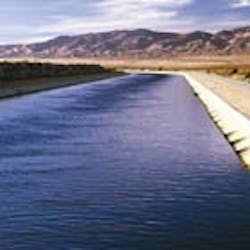EDF Praises California Legislature's Passage of ‘Historic’ Water Legislation
The Environmental Defense Fund (EDF) praised the California Legislature for passing new water legislation in both the Senate and Assembly today. It will be sent to Gov. Arnold Schwarzenegger to sign into law.
"This is a major breakthrough that sets a new framework for providing both water supply reliability and protecting our fragile ecosystems," said Laura Harnish, regional director of the EDF. "It puts California on course for a smarter water future."
"Future generations will look back at this legislation as the first big step on the path to a sustainable water future for California," said Cynthia Koehler, EDF's senior consulting attorney, who helped to negotiate the environmental safeguards in the legislation. "It is the most progressive package of state water policy reform in the last three decades."
"This package is only the beginning of moving toward a secure water future for the state," said Elgie Holstein, vice president of EDF's land, water and wildlife programs. "It sets an important standard for other states and the nation, by establishing that protecting and restoring the largest estuary on the West Coast--the irreplaceable Sacramento-San Joaquin Bay-Delta ecosystem--is a goal on par with providing a reliable water supply."
According to the New York Times, the Sacramento-San Joaquin River Delta will undergo comprehensive ecosystem restoration. There also will be an onslaught of water conservation goals and groundwater monitoring, as well as new dams.
The New York Times also reported that the bills include an $11.1 billion bond issue set for voter approval next November. Localities will pay for the remainder of the project, which costs approximately $40 billion.
Disputes over water supply and environmental protections have been at the forefront of vigorous and sometimes emotional debate in California. Drought, economic hardship in farming communities, extended salmon fishery closures and signs of imminent ecological collapse all combined to help convince the California Legislature that it had to act to protect water supply for future generations.
"No one got everything they wanted, but for the sake of our state's environmental and economic future, we all felt that we had an obligation to come together and keep working until we could reach an agreement," Koehler said. "That's what we have done."
Source: Environmental Defense Fund, New York Times
